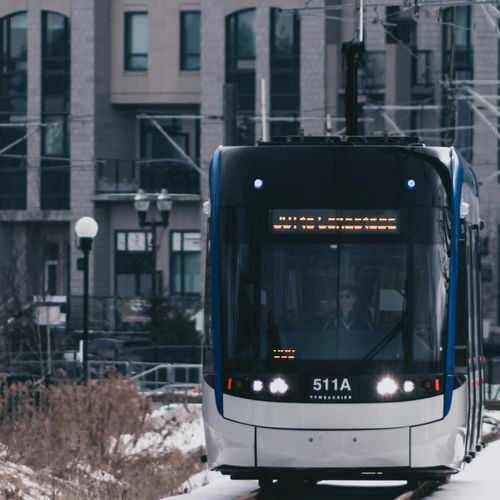If you’re even remotely involved in the Kitchener, Waterloo, or Cambridge real estate scene, you’ve undoubtedly heard the constant refrain: “We have a housing supply problem, just build more!”
As a real estate agent deeply connected to this community, I can tell you firsthand that it’s far more complicated than that. We’re facing a perplexing paradox: a desperate need for housing coupled with major developments stalling or collapsing. The question is, if the demand is so high, why aren’t these new units being snapped up?
The Development Game: How It’s Supposed to Work
Let’s start with the basics. Typically, a developer acquires land, secures city approvals, and begins pre-selling units before any construction starts. These pre-sales are not just about generating early revenue; they’re crucial for securing bank loans to fund the project.
In a perfect world, a few years later, the building is complete, buyers close on their units, the bank gets repaid, and everyone profits. Seems logical, right?
The Perfect Storm: Where It All Goes Wrong in Waterloo Region
Unfortunately, the past few years have thrown a massive wrench in this process. A confluence of factors has turned potentially lucrative projects into financial nightmares, leaving developers, buyers, and our community in a bind.
- The Pandemic’s Price Hike
- Remember the lumber shortage? That was just the tip of the iceberg. COVID-19 sent the cost of essential materials like concrete up by 55% and structural steel by 53%. RBC economists estimate that industry costs surged by more than 50% across Canada between 2020 and 2023. I’ve spoken with local developers who’ve seen their projected costs skyrocket, making once-profitable projects financially unsustainable.
- The Labor Shortage
- We all know there’s a shortage of skilled tradespeople. This has not only led to project delays but also forced developers to compete for workers, driving wages up by almost 10%. At one point in 2022, over 28,000 construction jobs in Ontario went unfilled, a 33% jump from the previous year. These delays and increased labor costs further strain already tight budgets.
- Rising Government Fees
- Development fees and taxes have also jumped significantly. In Kitchener, development fees on two-bedroom apartments have increased by a staggering 51% in just five years. Imagine a 500-unit building – that’s an extra $10 million in costs before even breaking ground. These fees, coupled with rising interest rates, can quickly turn a project into a financial sinkhole.
- The Interest Rate Rollercoaster
- With interest rates at their highest levels in years, the cost of borrowing for developers has become astronomical. Developers are often forced to take on larger and larger loans, with interest payments snowballing over time. It’s a precarious situation where even minor setbacks can lead to financial ruin.
The Tipping Point: When Local Projects Like the 500-Unit Kitchener Condo Crumble
These challenges have created a perfect storm, leaving many developers in dire straits. Just look at the proposed 500-unit condo development in Kitchener that recently went bankrupt. It was supposed to add much-needed housing to our community, but instead, it became another casualty of the crisis.
Remember those pre-sales? They were made at 2020 prices, which are now dwarfed by the actual cost of construction. Developers are left scrambling to sell the remaining units at a massive premium, sometimes 30-40% higher, just to break even.
But in today’s market, with high interest rates and economic uncertainty, buyers are understandably hesitant. I haven’t had a single client express interest in new construction lately. The prices are simply too high compared to resale condos. According to Urbanation, new condo sales in the GTA were down 57% in the first half of this year, and a staggering 72% below the 10-year average.
The Real Cost of Failed Projects: More Than Just Money
When a project fails, it’s not just about financial losses. Buyers lose their deposits, their dreams of homeownership shattered. Developers lose their investments, sometimes their entire livelihoods. And our community misses out on much-needed housing, like those 500 units in Kitchener that will never be built.
The Bottom Line: We Need a Smarter Approach
So, the next time you hear someone say the solution to the housing crisis is to “just build more,” remember the 500-unit condo development in Kitchener, the rising material costs, the labor shortages, and the soaring interest rates.
As a real estate agent in the Waterloo Region, I’m committed to helping my clients navigate this challenging market. But we also need to have a more nuanced conversation about housing supply. It’s a complex issue that requires thoughtful solutions, not just simplistic slogans.
Let’s work together to find a way forward. If you have any questions about the local market or need help finding a property, please don’t hesitate to reach out.



